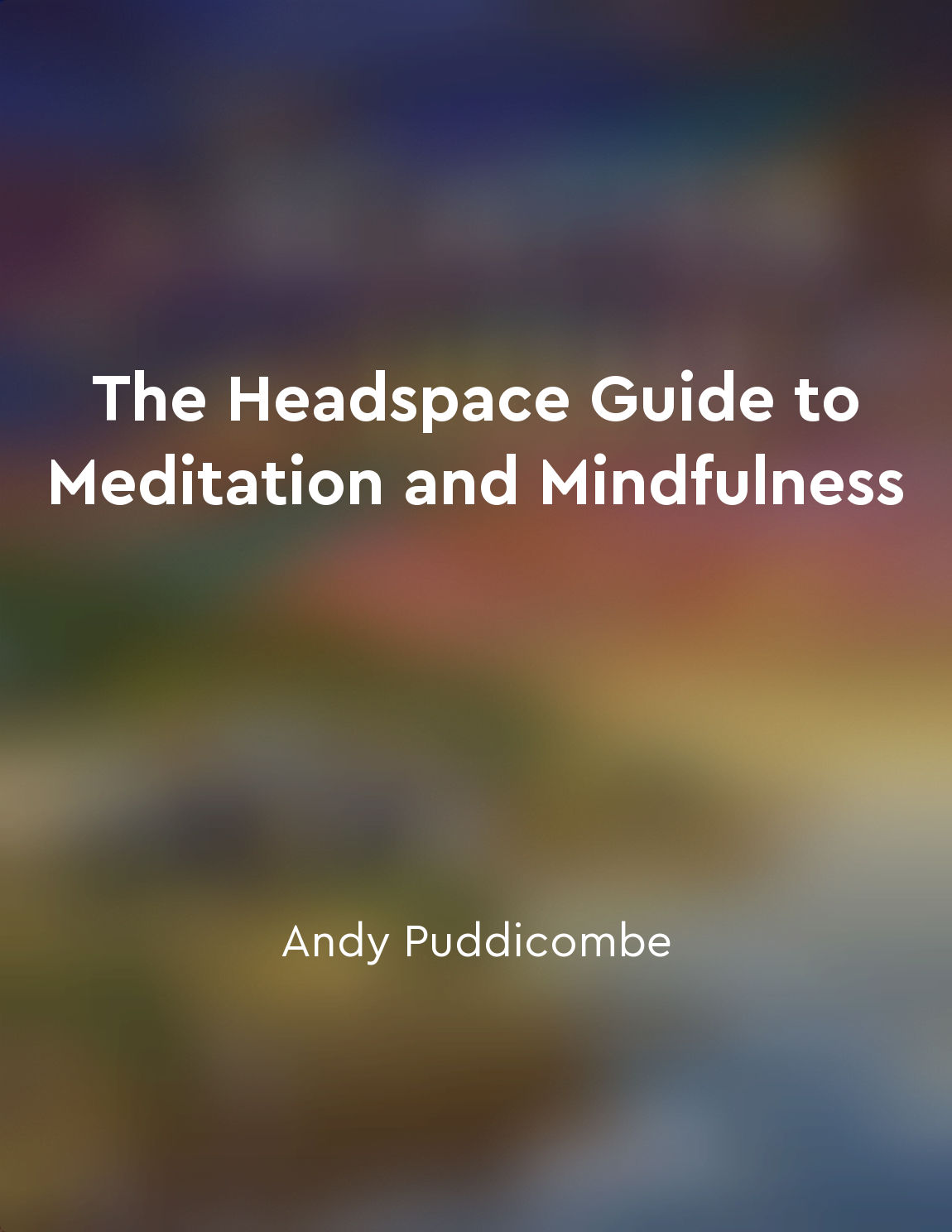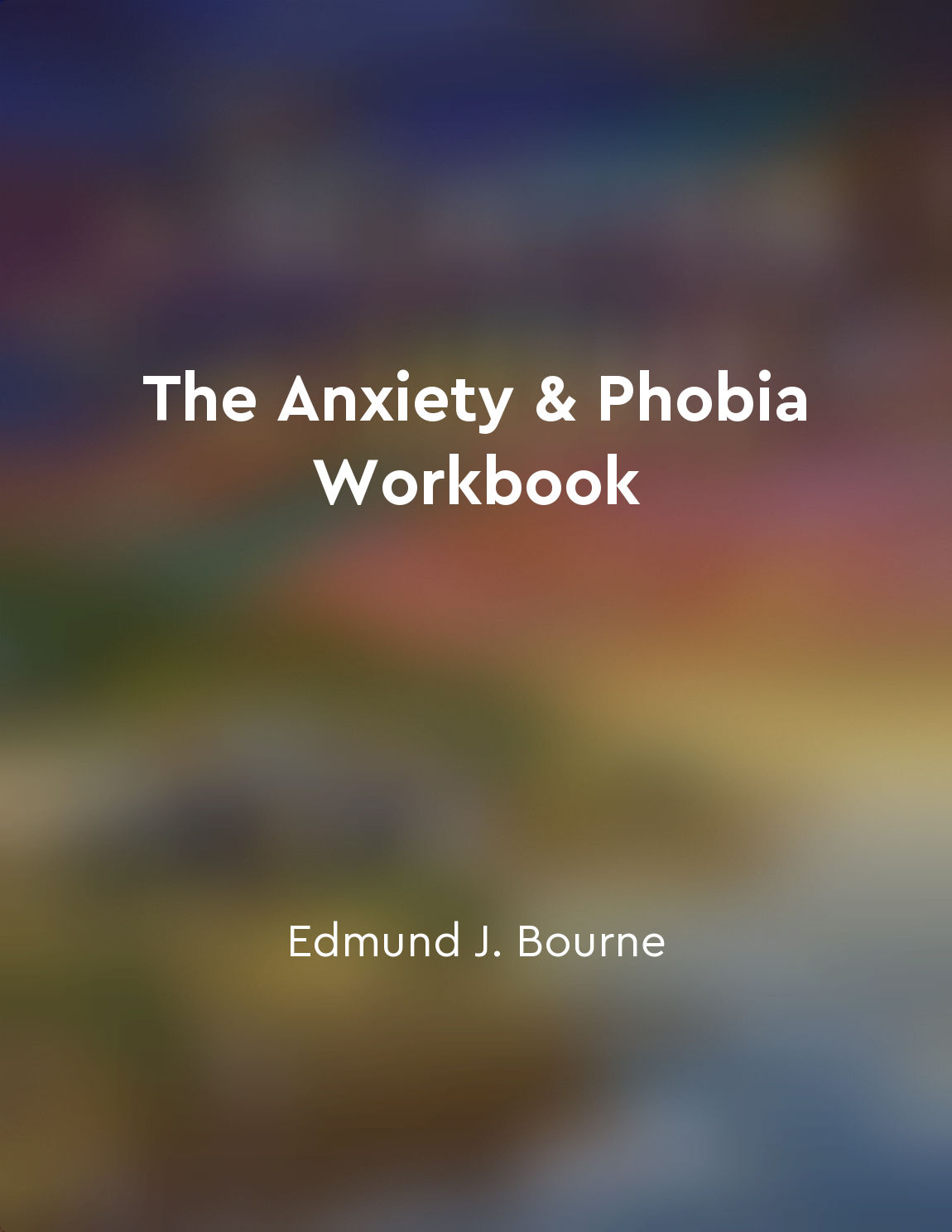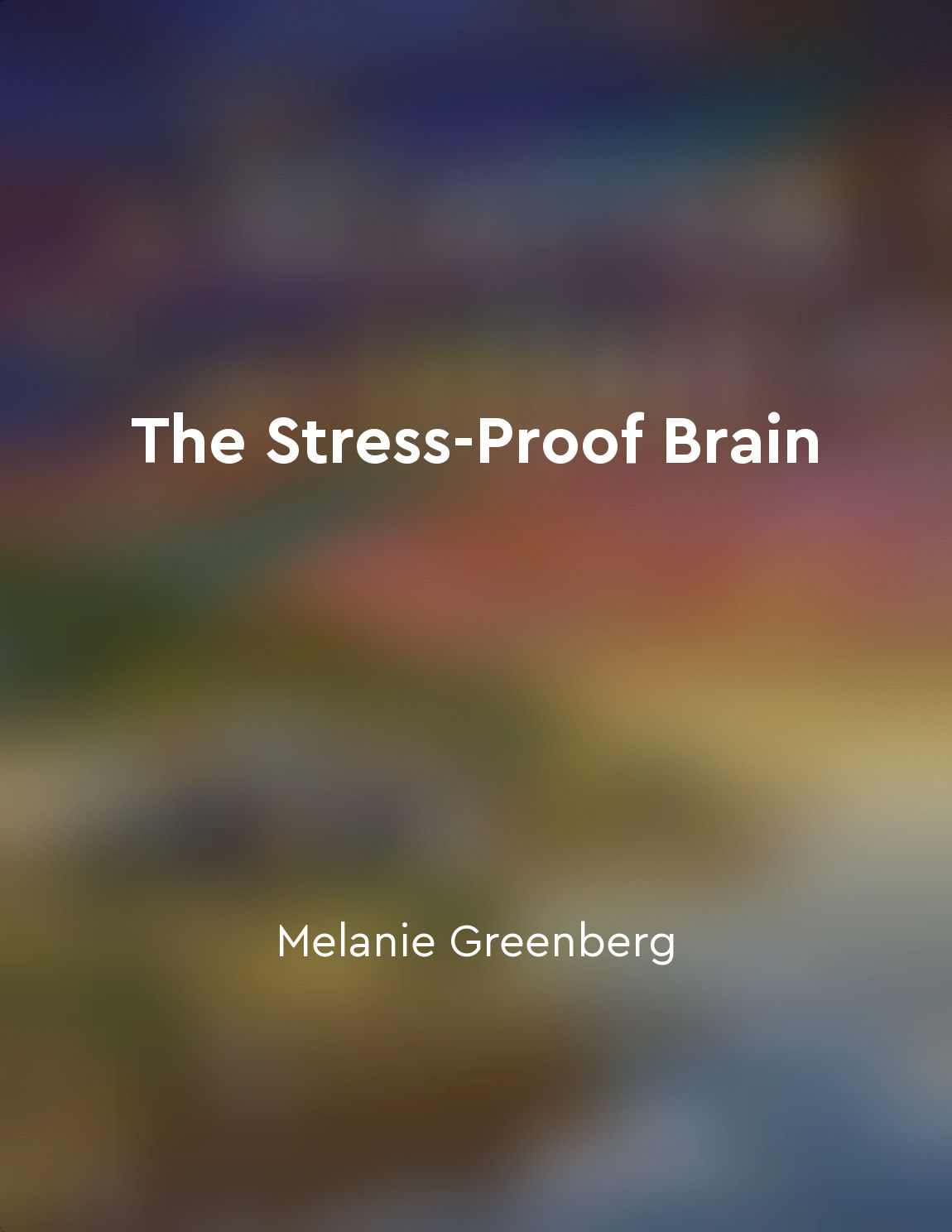Mindfulness practices can help regulate stress from "summary" of The Stress-Proof Brain by Melanie Greenberg
Mindfulness practices are a powerful tool for managing stress. When we are mindful, we are fully present in the moment, aware of our thoughts, feelings, and bodily sensations without judgment. This can help us notice when we are becoming stressed and take steps to calm ourselves down before it escalates. By practicing mindfulness regularly, we can train our brains to respond to stress in a more adaptive way. One way that mindfulness helps regulate stress is by activating the body's relaxation response. When we are stressed, our bodies go into "fight or flight" mode, releasing stress hormones like cortisol and adrenaline. These hormones can be helpful in the short term, but if they are constantly activated, they can have negative effects on our physical and mental health. Mindfulness practices like deep breathing, meditation, and yoga can help counteract this stress response by triggering the body's relaxation response. In addition to activating the relaxation response, mindfulness practices can also help us cultivate a sense of inner calm and resilience in the face of stress. When we are mindful, we are better able to observe our thoughts and feelings without becoming overwhelmed by them. This can help us develop a sense of perspective and distance from our stressors, making them seem less overwhelming. By practicing mindfulness regularly, we can build up our resilience to stress and become better equipped to handle life's challenges. Furthermore, mindfulness practices can help us break free from negative thought patterns that contribute to stress. When we are stressed, our minds often get caught up in worries about the past or future, leading to rumination and anxiety. Mindfulness can help us break this cycle by bringing our attention back to the present moment. By focusing on the here and now, we can interrupt these negative thought patterns and create space for more positive and adaptive ways of thinking.- Mindfulness practices offer a powerful antidote to stress in our fast-paced, modern world. By cultivating mindfulness, we can learn to regulate our stress responses, cultivate inner calm and resilience, and break free from negative thought patterns that contribute to stress. Through regular practice, we can train our brains to respond to stress in a more adaptive and healthy way, leading to greater well-being and overall quality of life.
Similar Posts
Own your morning
The way you begin your day sets the tone for how the rest of your day will unfold. By taking control of your mornings, you can ...

Create a dedicated space for meditation in your home
It can be helpful to establish a specific area in your home that is dedicated solely to your meditation practice. This space do...

Engage in activities that bring you joy
When you do things that make you feel happy and excited, you are engaging in activities that bring you joy. These activities ca...
Practice assertiveness in setting boundaries and expressing your needs
Setting boundaries and expressing your needs is crucial for your mental and emotional well-being. It is an essential skill that...
Prioritize sleep for optimal brain performance
Getting enough sleep is crucial for your brain to function at its best. When you don't get enough sleep, your brain doesn't hav...
Set clear goals
Having clear goals is like having a roadmap for your brain. When you know exactly where you want to go, your brain can focus on...
Decisionmaking skills are crucial for effective leadership
Effective leadership hinges on the ability to make sound decisions. This skill is not only valuable in navigating complex situa...

Cultivate a sense of purpose and meaning in your life
When you cultivate a sense of purpose and meaning in your life, you are essentially giving yourself a reason to wake up every m...
Seeking truth beyond the material world
When we talk about seeking truth beyond the material world, what we are really discussing is the idea that there is a deeper re...

Keeping a journal can track anxiety triggers and patterns
Keeping a journal can be a useful tool in understanding your anxiety triggers and patterns. By recording your thoughts, feeling...


